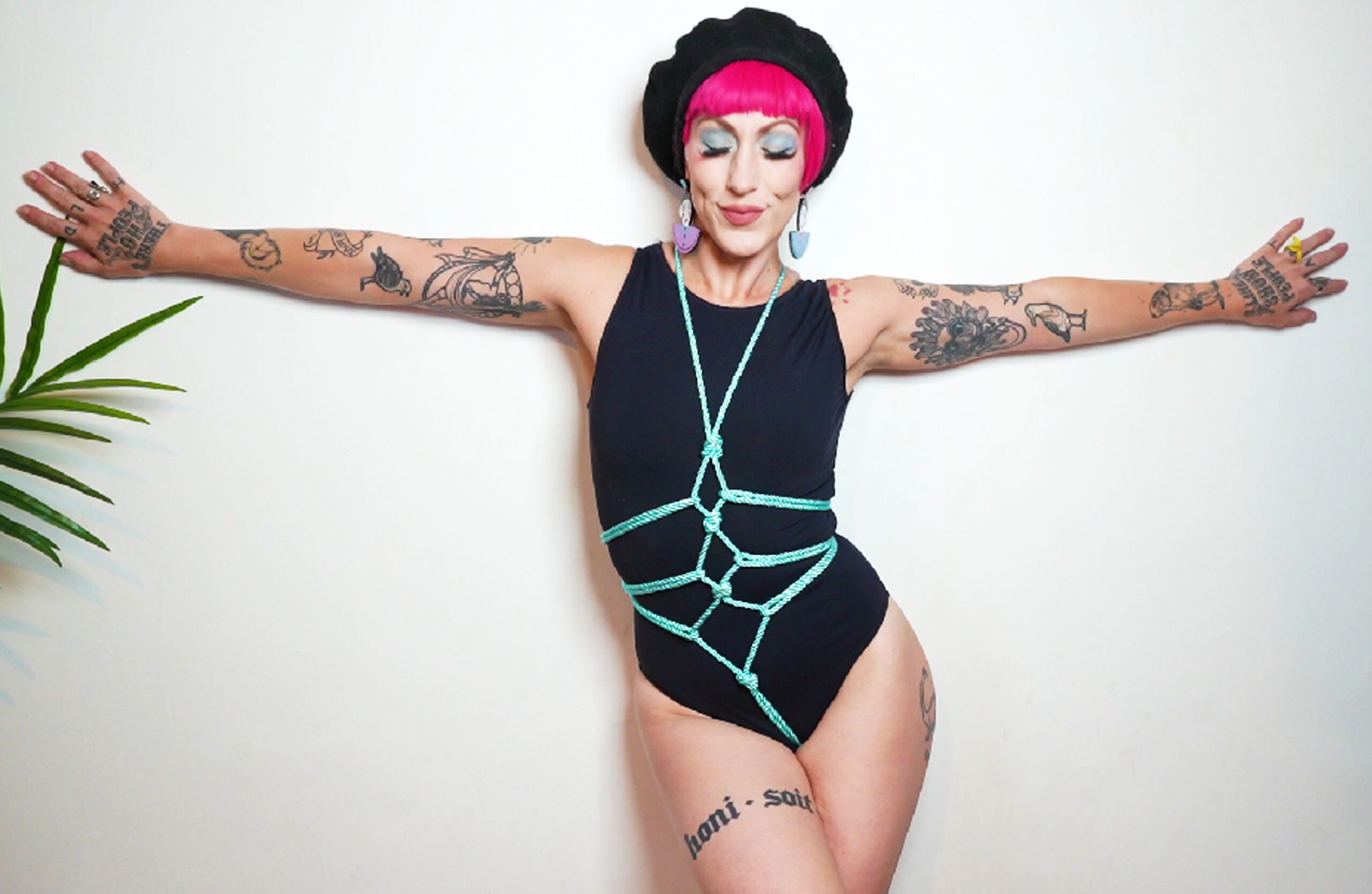Navigating Identity
Navigating identity as a demigender individual in a binary world can be a deeply complex and often isolating experience. Demigender identities encompass a vast spectrum, acknowledging that one’s gender identity partially aligns with the traditional binary categories of male and female. This partial alignment can manifest in various ways, ranging from feeling a strong connection to one gender while having a weaker or fluctuating sense of the other, to experiencing a blend of both.
The prevailing binary framework of gender, deeply ingrained in societal norms and expectations, presents a significant challenge for demigender individuals. This rigid structure often fails to encompass the nuances and complexities of individual experiences, leading to feelings of invalidation and misunderstanding. Language itself can be limiting, as it primarily relies on binary pronouns (he/him or she/her) and categories, leaving little space for demigender identities.
The process of deconstructing this binary requires a shift in perspective, moving away from rigid definitions and embracing the fluidity and diversity of human experience. It necessitates recognizing that gender is not a fixed or inherent trait but rather a spectrum with infinite possibilities. This understanding allows for greater inclusivity and acceptance of individuals who identify outside the traditional binary.
Demigender individuals often face the burden of explaining and justifying their identity to others, navigating a landscape where they may be met with confusion, skepticism, or even hostility. This can lead to emotional distress, self-doubt, and feelings of isolation. It is crucial for society to create a more supportive and understanding environment that validates the experiences of demigender individuals.

Creating this supportive environment involves promoting awareness and education about gender diversity. Encouraging open dialogues about gender identity can help dismantle harmful stereotypes and misconceptions. Language also plays a vital role; using gender-neutral language whenever possible, respecting individual pronouns, and being mindful of the impact of words are essential steps towards creating a more inclusive society.

Ultimately, navigating identity as a demigender individual in a binary world is a journey of self-discovery, resilience, and advocacy. It requires courage to embrace one’s true self despite societal pressures and to challenge the limitations of a rigid framework. By deconstructing the binary and fostering acceptance, we can create a world where all individuals, regardless of their gender identity, feel seen, heard, and valued.
Navigating identity as a demigender individual in a predominantly binary world can be a profoundly complex and multifaceted journey.

Demisexuality, a term that describes a sexual orientation characterized by experiencing sexual attraction only after forming a strong emotional bond with someone, presents unique challenges within societies that often equate physical attraction with love and desire.
One significant hurdle is the pervasive societal pressure to conform to rigid gender binaries – male and female. This binary framework can feel constricting for demigender individuals who identify partially with one gender and partially with another or neither, leaving them feeling marginalized and misunderstood.
Expressing demigender identity authentically often involves challenging these deeply ingrained societal norms. Clothing, hairstyle, and other outward expressions of gender identity can become tools for self-affirmation and reclaiming agency over how one is perceived.
Embracing non-conforming expression requires courage and resilience in the face of potential negativity or misunderstanding.
It’s a process of self-discovery and exploration, where individuals experiment with different ways of presenting themselves until they find what feels most authentic and comfortable.
Here are some key aspects of navigating identity and embracing non-conforming expression for demigender individuals:
1.
Self-Exploration and Acceptance:
Taking time to understand one’s own gender identity is crucial. This can involve introspection, journaling, exploring online communities, or seeking guidance from therapists or counselors specializing in gender identity.
2.
Finding Community:
Connecting with other demigender individuals or those who identify outside the binary can provide invaluable support, understanding, and a sense of belonging. Online forums, support groups, and local LGBTQ+ organizations offer spaces for sharing experiences and building connections.
3.
Challenging Binary Norms:
Actively questioning and dismantling societal expectations around gender expression can be empowering. This might involve consciously choosing clothing, hairstyles, or pronouns that defy rigid norms and celebrating the diversity of human experience.
4.
Educating Others:
Sharing information about demisexuality and gender identity with friends, family, and colleagues can help foster understanding and empathy. Patience and open communication are key when navigating conversations about these topics.
5.
Prioritizing Self-Care:
Navigating complex identities can be emotionally taxing. Engaging in self-care practices such as mindfulness, therapy, creative expression, or spending time in nature can help manage stress and nurture well-being.
Ultimately, the journey of navigating identity and embracing non-conforming expression is a deeply personal one.
There is no single right way to be demigender. It’s about finding what feels authentic and empowering for each individual, regardless of societal expectations or pressures.
Social Impacts
Navigating social landscapes as a demigender individual in a predominantly binary world can be fraught with challenges stemming from misunderstandings, microaggressions, and societal pressures.
-
**Social Impacts:**
-
Exclusion and Invisibility: Demigender identities often fall outside the recognized categories of male and female, leading to feelings of exclusion from both communities. This invisibility can contribute to social isolation and a lack of representation.
-
Pressure to Conform: Societal expectations around gender roles and expression can create immense pressure on demigender individuals to conform to binary norms. This pressure can be particularly intense during childhood and adolescence, where societal expectations are often more rigidly enforced.
-
Limited Support Systems: Access to support networks, such as friends, family, or therapists who understand demigender experiences, can be limited. This lack of understanding can exacerbate feelings of loneliness and isolation.
-
-
**Microaggressions:** Demigender individuals frequently encounter subtle yet harmful acts of discrimination known as microaggressions. These can include:
-
Misgendering: Being referred to with pronouns or names that do not align with one’s gender identity.
-
Assumptions about Sexual Orientation:** Making assumptions about a person’s sexual orientation based on their demigender identity.
-
Invalidating Experiences: ** Dismissing or minimizing the validity of a demigender person’s feelings and experiences.
-
-
**Misunderstandings:** Lack of awareness and understanding surrounding demigender identities can lead to numerous misunderstandings.
-
Confusion about Terminology: ** Difficulty in comprehending the nuances of terms like “demigender,” “nonbinary,” and other gender identities outside the binary.
-
Assuming Fixed Gender Identities:** Believing that gender is a fixed and unchanging aspect of a person, rather than a fluid and personal experience.
-
Addressing these social impacts, microaggressions, and misunderstandings requires a multi-faceted approach: promoting education and awareness about demigender identities, fostering inclusivity in language and social interactions, challenging binary norms, and creating safe and supportive spaces for all individuals to express their gender authentically.
Social impacts on demigenders stem from a world that primarily recognizes two genders, forcing them to navigate a system ill-equipped to understand their identities.
This can lead to:
-
Misgendering and Deadnaming: Constant misidentification as male or female, or being called by a name that no longer resonates, creates distress and invalidates their experience.
-
Exclusion and Invisibility: Lack of representation in media, language, and social structures makes demigenders feel unseen and unheard. This can lead to isolation and difficulty finding community.
-
Internalized Transphobia/Biphobia: Societal messages associating gender with fixed roles and behaviors can contribute to self-doubt and pressure to conform. Demigenders may internalize these messages, leading to anxiety about their identity.
-
Limited Access to Resources and Support: Services often cater to solely transgender or cisgender individuals, leaving demigenders with limited access to appropriate healthcare, legal support, and social networks.
Creating inclusive spaces for demigenders requires a multifaceted approach:
-
Education and Awareness: Promote understanding of gender diversity beyond the binary, using inclusive language and terminology. This includes educating oneself on different gender identities and pronouns.
-
Respectful Communication: Use individuals’ preferred names and pronouns. Actively listen to their experiences and validate their feelings without judgment or assumptions.
-
Representation Matters: Ensure diverse representation of demigenders in media, literature, and public spaces. This helps normalize their identities and create chibi sex position a sense of belonging.
-
Inclusive Language: Use gender-neutral language whenever possible. Avoid assuming someone’s gender based on appearance or name.
-
Policy Changes:** Advocate for legal recognition and protection of demigender identities. This includes access to healthcare, legal documents that reflect their gender identity, and anti-discrimination laws.
By fostering a culture of acceptance and understanding, we can create a more equitable world where all individuals, including demigenders, feel seen, valued, and empowered to live authentically.
Finding Community
Finding community can be particularly challenging for demigenders navigating a world often dominated by binary understandings of gender.
Lacking readily available representation and understanding, demigenders may feel isolated or misunderstood.
However, both online and offline spaces offer valuable avenues for connection and support.
Online platforms provide a wide range of options, from dedicated forums and social media groups to websites and blogs focused on demigender experiences.
These digital communities allow individuals to connect with others who share their unique identities, regardless of geographical location.
They offer spaces for open conversations about identity exploration, sharing personal stories, offering advice, and simply finding validation in knowing they are not alone.
Social media, in particular, has become a powerful tool for building online communities.
Hashtags like #demigender, #nonbinary, and #genderqueer can connect individuals with others who identify similarly.
Online groups often host discussions, share resources, and organize virtual events, fostering a sense of belonging and shared experience.
Offline support networks can be equally vital.
Local LGBTQ+ centers and organizations often provide safe and welcoming spaces for demigenders to connect with others in person.
These centers may offer support groups, workshops, social events, and resources tailored to the needs of diverse gender identities.
Additionally, universities and colleges frequently have LGBTQ+ student groups or resource centers that can provide a supportive environment for demigender students.
Attending these gatherings or connecting with other members through online platforms can offer valuable opportunities for face-to-face interaction and building lasting friendships.
Finding community, both online and offline, is essential for the well-being of demigenders.
It provides a sense of belonging, validation, and support, allowing individuals to explore their identities with confidence and resilience in a world that may not always understand.
Finding community for demigenders in a predominantly binary world can be a deeply personal and sometimes isolating journey.
Demigender individuals, who identify partially as one gender and partially as another or outside the gender binary, often face challenges in navigating societal expectations and finding spaces where their identities are understood and celebrated.
The lack of widespread awareness and understanding surrounding demigender identities can contribute to feelings of loneliness and invalidation. Many demigenders report experiencing microaggressions, dismissal of their experiences, or being pressured to conform to gender norms.
Fortunately, the internet has emerged as a powerful tool for connecting demigenders with one another and fostering a sense of belonging.
Online communities, forums, and social media platforms provide spaces where individuals can share their stories, connect with others who understand their experiences, and access resources and support.
These online spaces allow demigenders to explore their identities, learn about different perspectives, and build relationships with like-minded individuals from around the world.
Beyond the digital realm, local and national organizations dedicated to LGBTQ+ rights often offer support groups and events specifically for demigenders. These in-person gatherings provide opportunities for face-to-face connection, building friendships, and accessing resources and advocacy services.
Celebrating *demigender diversity* within these communities is crucial for fostering inclusivity and creating spaces where all individuals feel seen and valued.
This involves recognizing the wide spectrum of demigender experiences, embracing different expressions of gender identity, and challenging binary assumptions about gender.
It’s essential to create environments where demigenders can express their identities authentically without fear of judgment or discrimination.
By celebrating demigender diversity, we contribute to a more inclusive and understanding world for all genders.
Discover more in the full piece
Explore every key idea
- The Complete Guide To Negotiating BDSM Scenes - June 7, 2025
- Nu-Derm Skin System Near Chaldon, Surrey - June 5, 2025
- The Complexities Of Being Demigender In A Binary World - June 5, 2025
